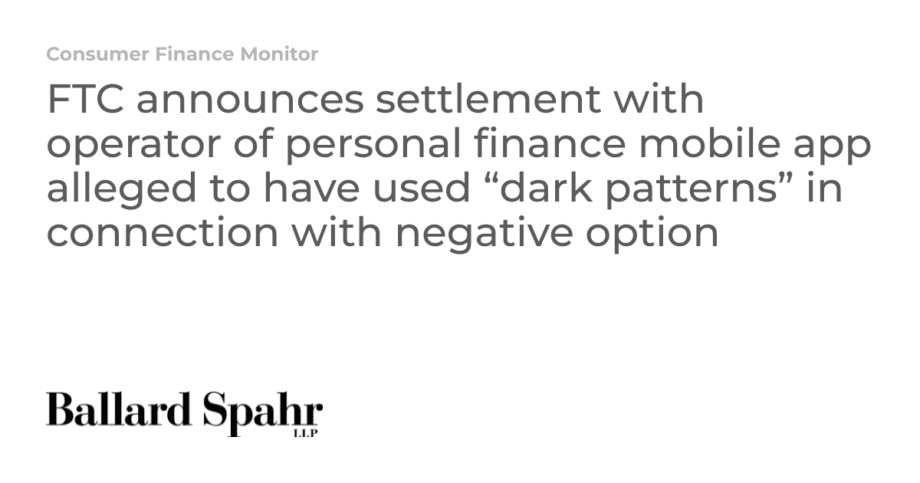The Federal Trade Commission recently reached a settlement with Bridge It, Inc. (“Brigit”), the company behind a personal finance mobile app. The settlement addressed the FTC’s claims that Brigit had engaged in unfair and deceptive practices, as well as violated the Restore Online Shoppers’ Confidence Act (“ROSCA”). As part of the settlement, Brigit agreed to pay $18 million in consumer refunds and make changes to its business practices.
Brigit’s app, which offers alerts and short-term cash advances, has two membership options: a free plan with balance alerts and a $9.99 monthly Plus Membership that includes cash advances. The Plus Membership automatically renews each month unless canceled by the user.
The FTC alleged that Brigit misled consumers by promising cash advances and quick delivery, while in reality, many users were not eligible for the full $250 advance, faced additional fees, and had difficulties canceling their memberships due to confusing processes.
Brigit was accused of using “dark patterns,” deceptive design tactics that hindered users from canceling subscriptions easily. The FTC found that Brigit charged users without their consent, leading to unauthorized fees.
The FTC’s complaint stated that Brigit’s practices violated the FTC Act by making false representations about cash advances and using negative option marketing, contrary to ROSCA requirements. The settlement includes provisions to prevent Brigit from misrepresenting its services and using negative option features without proper disclosures and consent.
Earlier in 2023, the Consumer Financial Protection Bureau (CFPB) addressed negative option marketing practices and outlined guidelines to prevent abusive conduct, highlighting the impact of dark patterns on consumer transactions. The CFPB’s policy statement on abusive acts and practices underscores the importance of transparent and fair dealings in the finance industry.




